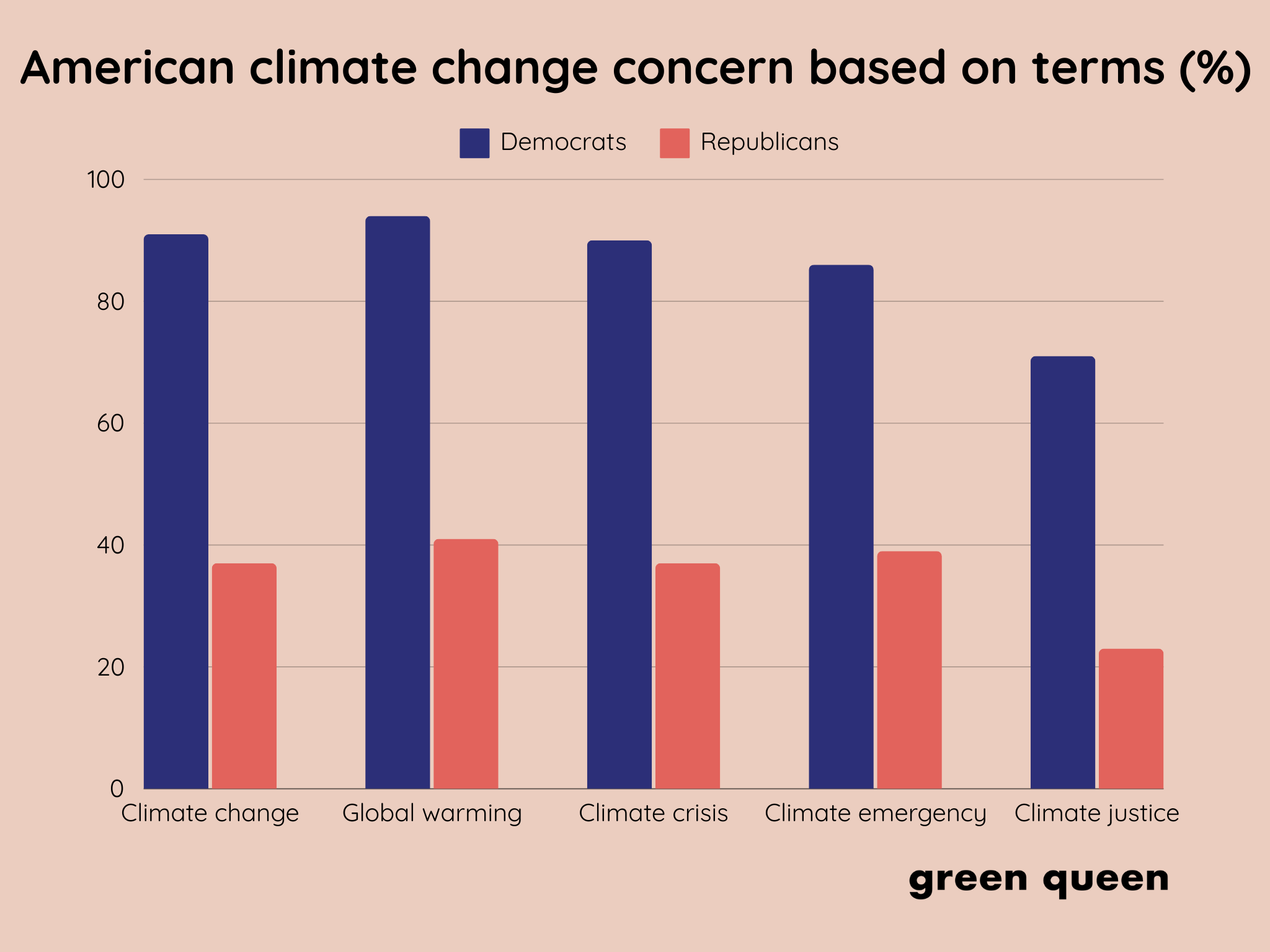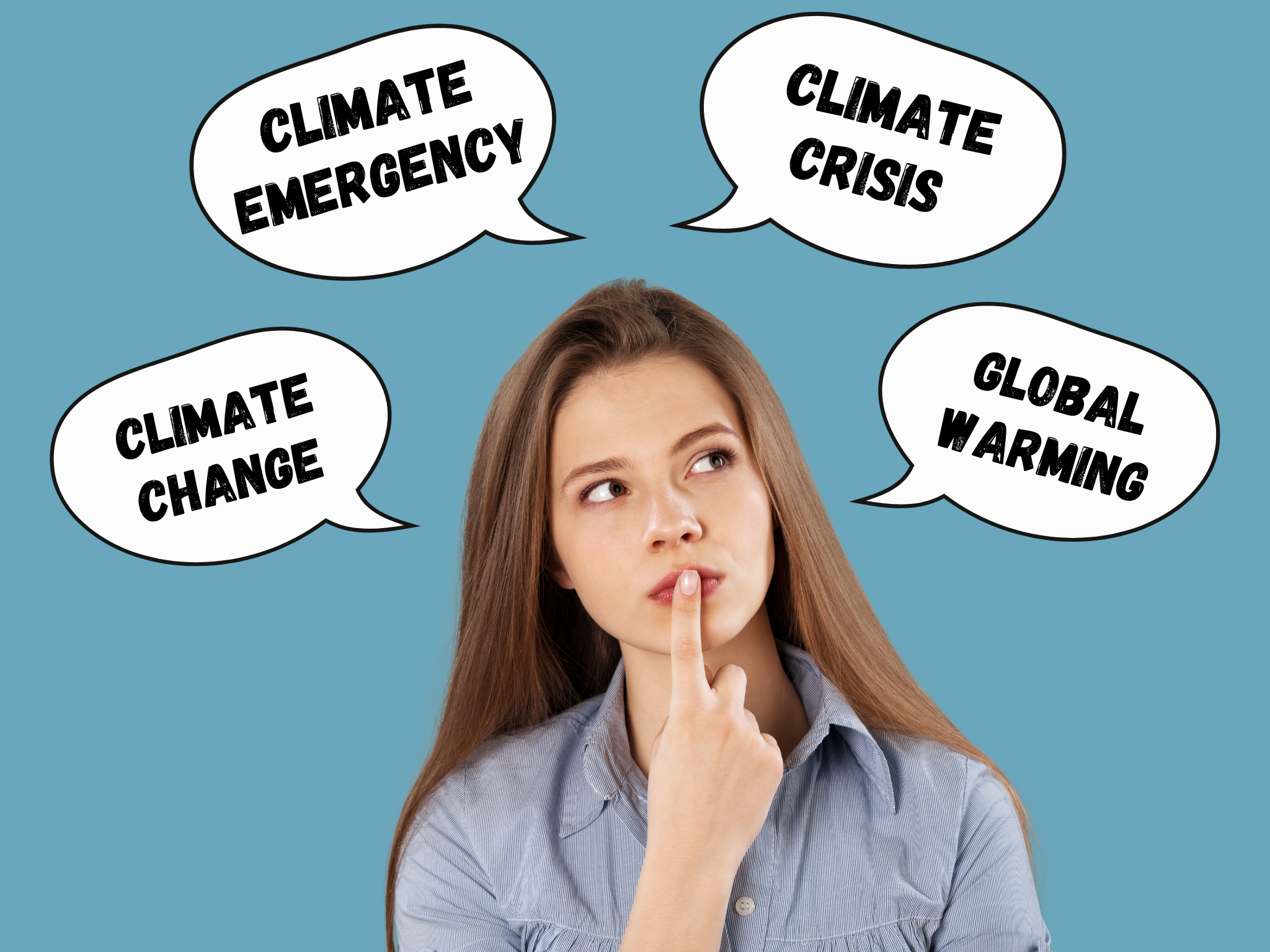Climate Crisis? Global Warming? What’s the Best Way to Describe Climate Change to Democrats and Republicans?
5 Mins Read
A new study reveals how people perceive the different terms used to describe climate change, and how they fare across the US political spectrum.
When the Guardian announced in 2019 that it would stop using the term ‘climate change’, instead favouring “climate emergency, crisis or breakdown” to home in on the gravity of the situation, it was a marker of the need to reshape the way we talk about the environment.
Terms like ‘climate emergency’, ‘climate crisis’, ‘climate justice’ and perhaps the predominant one, ‘global warming’ regularly appear in the conversation around climate change.
But a new study by the University of Southern California has found that some of these terms stick better than others. In the survey, researchers asked 5,137 Americans how different phrases affected their familiarity, concern and urgency about climate change, as well as their willingness to support policies and eat less red meat.

They found that most people were more people were familiar with ‘climate change’ (88%) and ‘global warming’ (87%) than the rest, while ‘climate justice’ only rang a bell for a third. This trend was consistent across the board, informing people’s levels of worry and willingness to act.
“Terms that are familiar are more likely to resonate with people. It’s harder to feel concern about something you’re not sure you’ve heard of,” said lead author Wändi Bruine de Bruin.
‘Global warming’ the most popular term
In a post on The Conversation, de Bruin and co-author Gale Sinatra explain how the terms have evolved over the years. Despite a tendency to use them as synonyms, climate change and global warming have different meanings – the former relates to in the overall climate, and the latter specifically refers to rising temperatures.
Terms like ‘climate crisis’, ‘climate emergency’ and ‘climate justice’ are fairly recent, mainly used to depict the urgency and active threat presented by climate change.
“Activists use the term climate justice to draw attention to climate change as a human rights challenge: low-income people around the world suffer the most from the effects of climate change, despite being the least responsible for causing it,” the authors explain.
The study gauged how people’s worries about climate change were shaped by the terms used. ‘Global warming’ elicited the most concern (72%), followed by ‘climate change’ (68%). Here, too, ‘climate justice’ only gave pause to 48% of Americans.

But people’s perceptions of urgency and readiness to support climate policies or eat less red meat, which is the biggest contributor to dietary emissions globally, didn’t waver too much from term to term. Interestingly, though, majorities existed in each of these three metrics.
For example, at least 65% of Americans say they’d be willing to cut down on red meat (when referred to as ‘climate change’ or ‘climate justice’). But this rises to 72% for the term ‘global warming’. Likewise, the latter also makes 81% willing to support climate policies, compared to 76% for ‘climate change’ or ‘climate crisis’.
Partisan politics divides US climate perspectives
In 2017, research found that people in the past were less likely to associate ‘climate change’ with the idea that humans are causing this crisis than the term ‘global warming’. “Perhaps this is why Democrats used to like the term ‘global warming’, while the popularisation of the term climate change has been credited to Frank Luntz, an adviser to the George W. Bush administration,” de Bruin and Sinatra write.
It’s an interesting bit of information to contrast with the study’s results when broken down by respondents’ political leanings.

While 91% of Democrats and 73% of Independents express concerns when about ‘climate change’, only 37% of Republicans do so. Even with ‘global warming’, the gap between Democrats (94%) and Republicans (41%) is worryingly big – especially when you consider that 88% of Republicans are familiar with both terms.
But it’s not especially surprising, given that every single climate denier in the US Congress belongs to the GOP. Around 45% of Republican House Representatives and Senators in the federal government think climate change is a hoax. It explains why ‘climate change’ was consistently the weakest term associated with Republicans in this study.
When it comes to policymaking, while 96% of Democrats are back climate legislation across four of the terms (plus 97% for ‘climate justice’), Republicans’ support ranges between 50% (‘climate change’) and 61% (‘global warming’).

The difference was wider when it comes to red meat consumption. The terms ‘climate change’ and ‘global warming’ make 91% and 93% of Democrats willing to reduce their intake, respectively, versus just 35% and 45% of Republicans.
This is an indicator of the culture wars brewing up in Republican-majority states against plant-based and cultivated meat. Just this week, Californian cultivated chicken producer Upside Foods sued Florida for banning these proteins from being sold in the state. One survey has found that Democrats are much more receptive to cultivated meat than Republicans.



